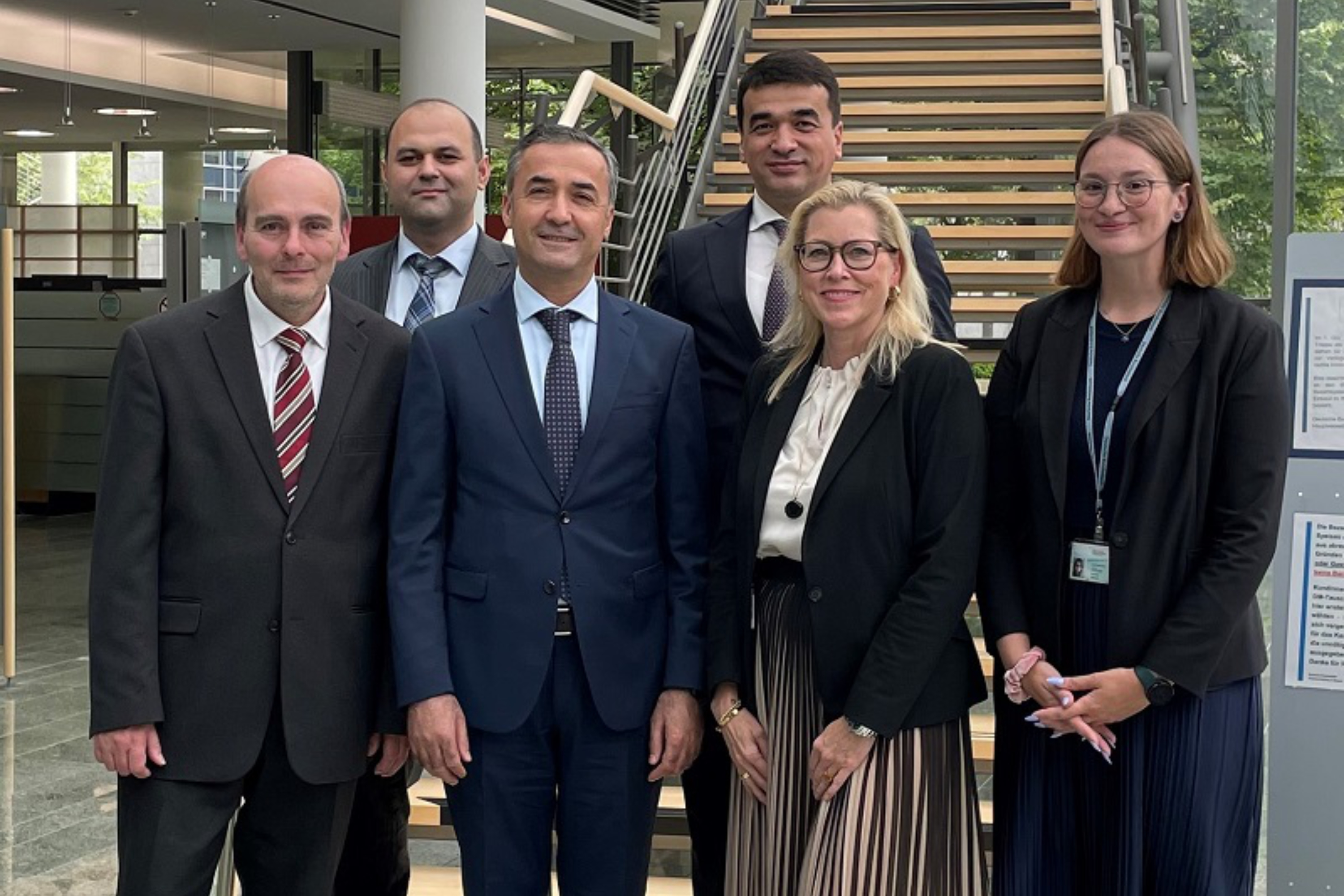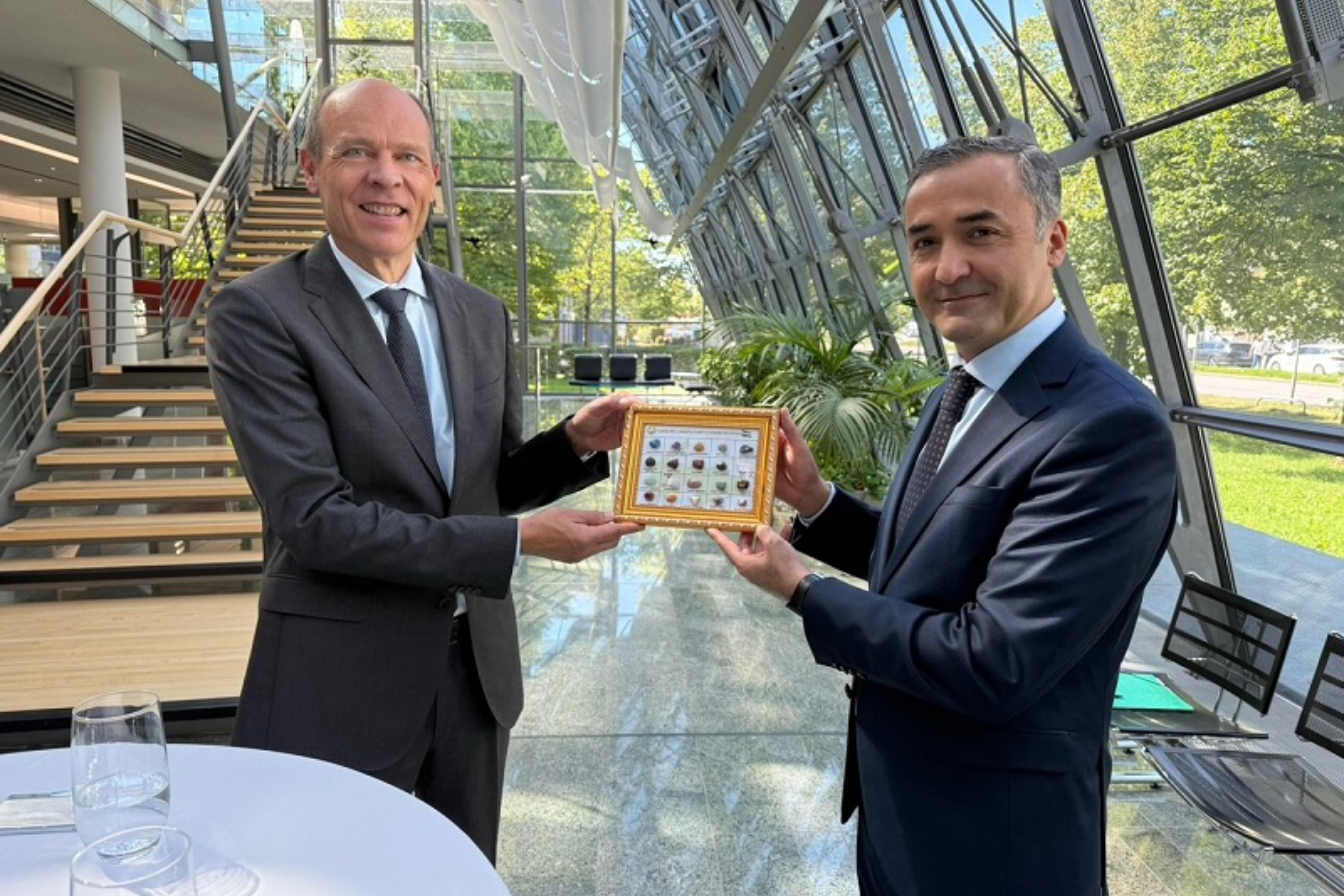
Building bridges in central banking: delegation from Tajikistan hosted in Munich
On 5 August 2025, the Bundesbank welcomed a special delegation: the Governor of the National Bank of Tajikistan, Firdavs Tolibzoda, visited the Bavarian capital together with his Head of Money Supply and Cash Operations, Komron Jalolzoda, and the Head of the Construction Department, Nasim Muhabatov.

The day began with warm words from Reinhold Vollbracht, President of the Regional Office in Bavaria, who, in his welcome speech, highlighted the similar multi-level hierarchies at the Deutsche Bundesbank and the National Bank of Tajikistan. Both institutions rely on a central organisation with regional branches to perform their tasks in an efficient and decentralised manner.
Insights into the world of cash management
After the reception, Thomas Langer, Senior Adviser for Cash Management at the Centre for International Central Bank Dialogue (CIC), welcomed the guests from Dushanbe. Michelle Kreuzer presented the Munich branch as one of the traditional “big five” in cash management at the Deutsche Bundesbank. She explained the key tasks ranging from cash processing with state-of-the-art machines to the settlement of deposits and withdrawals.
Thomas Langer outlined all the aspects of automation and digitalisation in cash management. He showed how innovative technologies – from modern cash processing machines to revamping (modernisation) programmes – can enhance efficiency and security in this area.
A successful meeting
In closing, there was an exchange of ideas and experiences with Heidrun Fuchs, Head of the Munich branch. The delegation from Tajikistan showed great interest in the topics presented and took the opportunity to ask numerous questions.
The National Bank of Tajikistan reported on the visit to the Bundesbank on its website and social media. The Governor highlighted that the open dialogue allowed both sides to learn from each other and to gain new perspectives. He expressed his warmest thanks for the hospitality and valuable insights into the Bundesbank’s working methods.
The bilateral cooperation underlines the importance of international dialogue in central banking. Meetings of this kind not only promote the exchange of knowledge, but also strengthen relations between central banks worldwide and are thus an important part of the Bundesbank’s work.